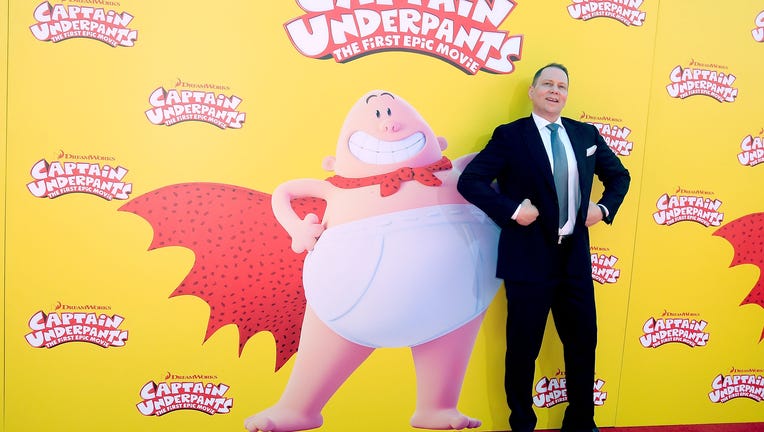'Captain Underpants' book pulled for 'passive racism'

WESTWOOD, CA - MAY 21: Author Dav Pikey attends premiere of DreamWorks Animation and 20th Century Fox's 'Captain Underpants' at Regency Village Theatre on May 21, 2017 in Westwood, California. (Photo by Barry King/Getty Images)
NEW YORK - A graphic novel for children from the wildly popular "Captain Underpants" series is being pulled from library and book store shelves after its publisher said it "perpetuates passive racism."
The book under scrutiny is 2010's "The Adventures of Ook and Gluk" by Dav Pilkey, who has apologized, saying it "contains harmful racial stereotypes" and is "wrong and harmful to my Asian readers."
The book follows about a pair of friends who travel from 500,001 B.C. to 2222, where they meet a martial arts instructor who teaches them kung fu and they learn principles found in Chinese philosophy.
Scholastic said it had removed the book from its websites, stopped processing orders for it and sought a return of all inventory. "We will take steps to inform schools and libraries who may still have this title in circulation of our decision to withdraw it from publication," the publisher said in a statement.
Pilkey in a YouTube statement said he planned to donate his advance and all royalties from the book’s sales to groups dedicated to stopping violence against Asians and to promoting diversity in children’s books and publishing.
FREE DOWNLOAD: Get breaking news alerts in the FOX6 News app for iOS or Android
"I hope that you, my readers, will forgive me, and learn from my mistake that even unintentional and passive stereotypes and racism are harmful to everyone," he wrote. "I apologize, and I pledge to do better."
The decision comes amid a wave of high-profile and sometimes deadly violence against Asian Americans since the pandemic began.
Earlier this month, the estate of Dr. Seuss said six of his books would no longer be published because they contained depictions of groups that were "hurtful and wrong," including Asian Americans. The move drew immediate reaction on social media from those who called it another example of "cancel culture."

